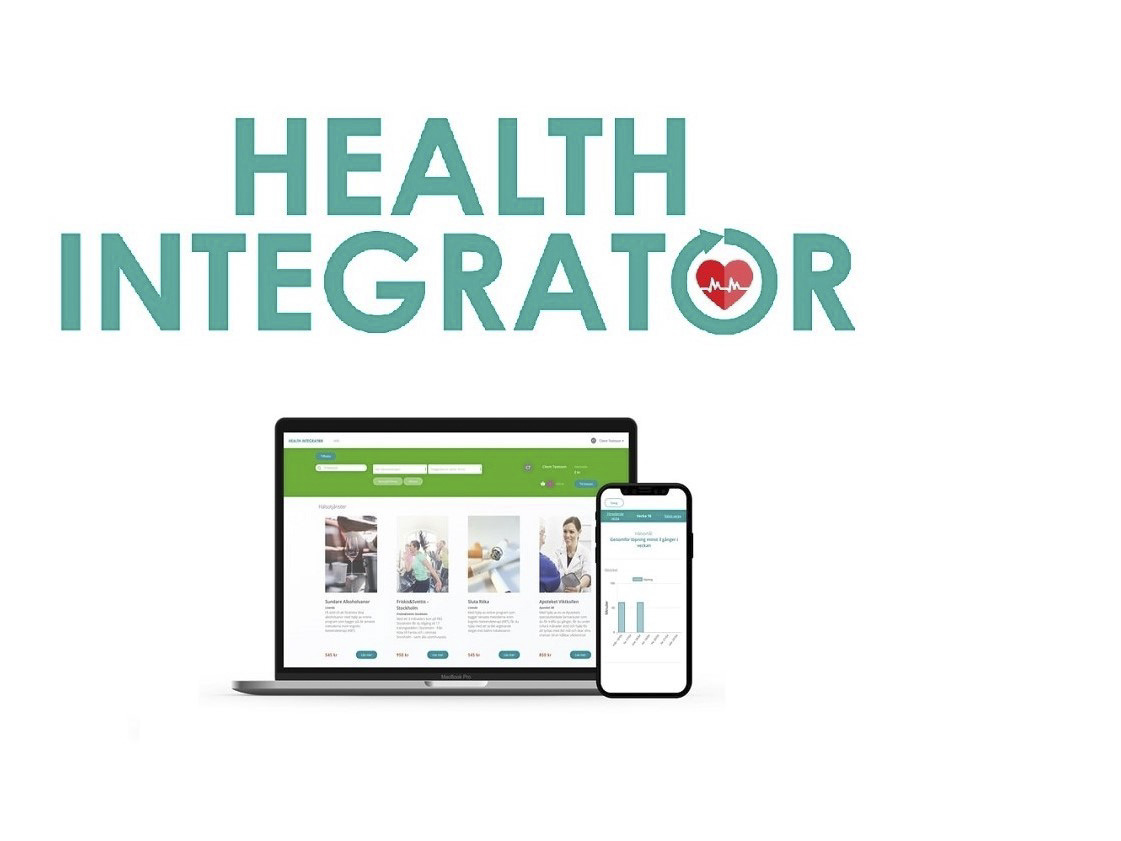10th July 2019
Health Integrator is part of “HealthMovement”, an EIT Health Innovation By Design project
Focusing on the individual’s needs and preferences increases the possibilities to prevent lifestyle-related illnesses. This is the guiding principle for the Health Integrator – an innovative service designed to support and motivate people into changing their lifestyle for better health. Around 300 people in a number of workplaces in Stockholm are now testing the Health Integrator in a pilot study. The digital platform will guide its users to a healthier lifestyle by using its services and products.
Fredrik Söder, the Health Movement project leader and CEO of the Health Integrator company, calls the Health Integrator a “digital vaccine against unhealthyness.”
Most people know that health and habits are related and that unhealthy habits can, unfortunately, have consequences for their well-being. Nevertheless, it may be very difficult to change habits, even though help is available. Today, finding the right services which fit your own needs and preferences is also difficult considering the amount of options available.

We want to shift the focus from reactive healthcare to proactive health based on the individual’s needs, conditions, own participation and dedication. The study we are doing now is not about creating new health services, but instead tests what difference it can make if the individual gains greater understanding and power to decide on his/her health situation and get resources to act on this insight.
The service is based both on personal meetings with trained health educators and a digital marketplace, in the form of a platform, with health offerings from existing providers that support people to improve their health.
“Preventive efforts have a significant potential to reduce society’s costs and increase people’s quality of life,” says Ylva Trolle Lagerros, Specialist, and Research Director at Stockholm County Council (SLL) / Karolinska Institute.
As most people know, obesity, sedentary, prolonged sleep deprivation, smoking and junk food increase the risk of developing a variety of chronic welfare diseases, such as type 2 diabetes – which accounts for a large part of today’s healthcare costs. Based on a recent investigation, the Public Health Authority, for example, notes that only obesity costs society around 70 billion a year. Stockholm alone has over 100 000 people with diabetes, where about 90 percent of these have type 2. About 10 percent of Stockholm County Council’s total budget goes to diabetes care.
When we reach the goals we set up, such as reduced risk of diabetes in a defined group, the healthcare administration can order its services, for example, from a life science company or any other actor. The resources are finite and within SLL diabetes costs are 5.3 billion SEK. If we can prevent half of these cases, we have billions to contribute to other areas, says Jan Andersson, Research, and Innovation Director at Stockholm County Council (SLL).
All participants in the study start with an initial health survey and self-assessment of their health condition. They are divided into three groups with continuous support from health educators as well as guidance in selecting appropriate health services in an App. The services are divided into categories of physical activity, diet, sleep, stress, tobacco, and alcohol. The other group is the control group and only accesses the platform at the final stage of the study. The third group gets access to the platform with limited support from the healthcare provider. The purpose of the study is to validate the effect of giving personal help but also finding the balance and optimising the digital versus human contact.
“We see many opportunities with the Health Integrator, both as an employer and to our clients, to help with the relocation to prevention. Here it is important to have the individual’s needs and conditions at the centre but also resources in a supportive system and network of actors,” says Kristina Ström Olsson, health strategist at Länsförsäkringar.
The pilot study is conducted in collaboration between Stockholm County Council (SLL) and Karolinska Institutet within the framework of a European project, Healthmovement, led by RISE (Research Institutes of Sweden) and funded by EIT Health. The purpose of the study is to evaluate the design and effect of the Health Integrator. In parallel with the study, SLL investigates the forms of work on preventative health interventions within the framework of a Health Impact Bond, or outcome contract. The model is based on sharing risk and value between different actors and supporting the development of innovative preventive efforts to avoid increased costs in the future.
The companies participating in the study are Länsförsäkringar, Apoteket AB, Nobina public transport and Arriva public transport.
Learn more about the Health Integrator here.
Visit the links below to learn more about the Health Movement project:
- Health Movement – official web page
- Health Movement – EIT Health Innovation by Design Project
Dagens Medicin, a leading news magazine for Swedish healthcare, has also published an article about the Health Movement which you can read here (in Swedish).
For any further enquiries contact:
Fredrik Söder, Fredrik.soder@ri.se
Europe's top health start-ups take centre stage: EIT Health Catapult winners are revealed at HLTH Europe

2025 Catapult programme winners announced.
Finding Europe’s next healthtech leaders: Insights from Antoine D’Hollander

Insights from Antoine D’Hollander, Capricorn Partners.
EIT Health supports 17 promising deep tech start-ups bridge the ‘Valley of Death’

Providing start-ups with the right support.